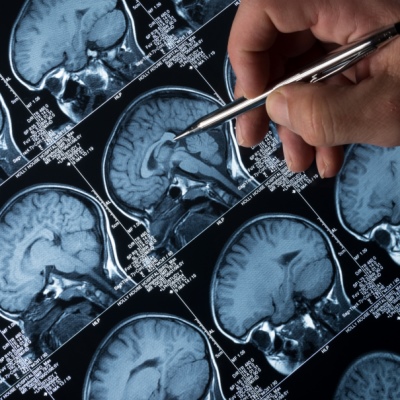Growth hormone deficiency in adults is not as common as it is in children, and not as easy to detect. With youngsters, short stature or delayed growth immediately sends out warning signals that something is not right. However, with adults, the vast array of symptoms that point to low growth hormone levels may also be due to other conditions. The HGH deficiency causes may also be just as elusive to detect. In many situations, the doctor may report the cause as idiopathic.
In this review of growth hormone deficiency in adults causes , we will examine how injuries to the brain, tumors, opioid abuse, medical conditions, and even the role of aging contribute to a decline in GH production.
There is not always a clear answer to what causes HGH deficiency or even why. What we do know is that the body naturally decreases growth hormone production once a person reaches adult height. By their mid-twenties, most people begin to reduce pituitary gland output of the hormone also called somatotropin. The decline is slow, and most individuals never notice any change. However, that is not always the case. For some people, the body does not adjust to this decline, and, after a decade or two or three, they may begin to show signs of adult growth hormone deficiency.
Idiopathic HGH deficiency causes are unknown. There may be situations where a person has forgotten or not considered a past motor vehicle accident, fall, or sports head injury, and that could lead to problems with pituitary gland or hypothalamus hormone production.
The causes of HGH deficiency can be acquired, congenital, or idiopathic. It is rarely genetic (congenital) in adults, especially since those symptoms would likely show up during childhood.
Adult-onset acquired HGH deficiency may be caused by any of the following:
- Hormonal
- Hyperparathyroidism – too much thyroid hormone could trigger a lack of signals from the hypothalamus to the pituitary gland
- Infections
- Fungal
- Parasites
- Pneumocystis carinii
- Tuberculosis
- Viral
- Infiltrative/Inflammatory
- Pit-1 antibodies
- Pituitary antibodies
- Primary hypophysitis
- Granulomatous
- Lymphocytic
- Xanthomatous
- Secondary hypophysitis
- Hemochromatosis
- Histiocytosis X
- Sarcoidosis
- Wegeners granulomatosis
- Medications
- Somatostatin analog
- Opioids
- Neoplastic
- Craniopharyngioma
- Hematologic malignancy
- Hypothalamic tumor
- Parasellar mass
- Dermoid cyst
- Ependymoma
- Germinoma
- Glioma
- Meningioma
- Rathke cyst
- Pituitary adenoma
- Pituitary metastatic deposits
- Traumatic
- Radiation damage
- Surgical resection
- Traumatic brain injury (TBI)
- Vascular
- Aneurysm
- Apoplexy
- Arteritis
- Pregnancy-related
- Subarachnoid hemorrhage
- Idiopathic – unknown causes
Although there are many possible causes of HGH deficiency in adults, in many cases, the doctor may label it as idiopathic or unknown.
How Do Brain Injuries or Tumors Cause HGH Deficiency?
In some cases, HGH deficiency causes are apparent, such as when a person is in a serious accident that causes head trauma. At other times, a severe, continuous, or unresponsive to medication headache may give insight that leads to the diagnosis of a brain tumor.
What are the causes of HGH deficiency such as a brain tumor or head injury going to do to influence growth hormone production?
The hypothalamus and the pituitary gland are the controlling parts of the endocrine system. They are responsible for the secretion of many of the hormones that either perform critical functions in the body or stimulate other hormones to do the same. The hormones of the hypothalamus and pituitary gland influence every aspect of health, including physical and emotional well-being. Any type of trauma to the head, a tumor in the brain, or even radiation or surgery to treat the tumor can influence hormone secretion.
Perhaps the biggest problem is that endocrine system issues related to a head injury, tumor, or associative treatment may not show up right away. It could be months, years, or even decades before the realization that a prior incident has influenced hormone levels.
It may take years for growth hormone deficiency associated with a head injury, tumor, or treatment for a tumor to manifest.
Why Does Opioid Use Cause HGH Deficiency?
The opioid crisis in the US is at an all-time high. One of the biggest problems that we see as hormone specialists is that doctors prescribing opioids for the treatment of other conditions or to reduce pain do not monitor endocrine hormone levels for deficiencies that could and often do occur.
Why are opioids in the list of growth hormone deficiency causes ?
Opioid abuse falls under HGH deficiency causes because opioids suppress the hypothalamic-pituitary-gonadal axis. The hypothalamic-pituitary axis is under continuous influence from steroid hormones, neurotransmitters, and endogenous opioids – ones that occur naturally in the body. Exogenous opioids (from outside sources) exerts their effects on the same receptors as endogenous opioids which can cause interference with the release of gonadotropin-releasing hormone (GnRH) that leads to follicle-stimulating hormone (FSH) and luteinizing hormone (LH) release. LH regulates testosterone production, which also influences growth hormone levels, so when these changes occur, and opioids reduce the negative feedback of the sex hormones on the anterior pituitary gland, hormone production declines.
Opioids decrease the production of hormones associated with the hypothalamic-pituitary-gonadal axis.
Reasons for Other Causes of HGH Deficiency
The most likely causes of HGH deficiency in adults stem from either idiopathic or unknown reasons or head trauma, tumors (and their treatment), or opioid abuse. Sometimes, the blood supply leading to the pituitary gland can be a problem.
Children who were previously diagnosed with growth hormone deficiency may still require treatment as adults if their pituitary glands cannot produce enough GH for the body’s receptors.
Here at RX Hormone medical condition, we run a series of comprehensive blood panels to detect not only growth hormone deficiency but also other health issues that could be the cause of changing hormone levels. When a physical examination and review of a person’s comprehensive medical history does not turn up any distinct HGH deficiency causes , the reason remains idiopathic. In most instances, it is not necessary to run other, more invasive, and expensive diagnostic tests. For example, unless a person also complained of constant headaches, there is no reason to order an MRI or CT Scan to check for a brain tumor.
For further information about HGH deficiency, please contact RX Hormone for a free, confidential consultation.

